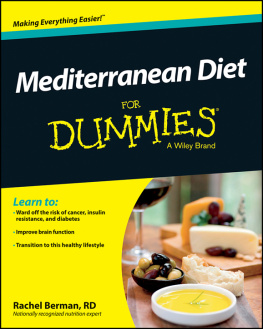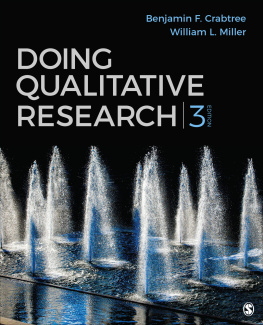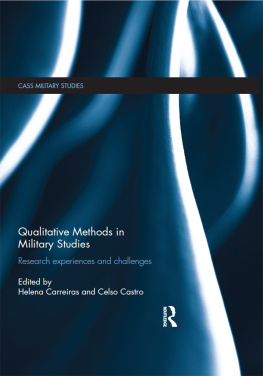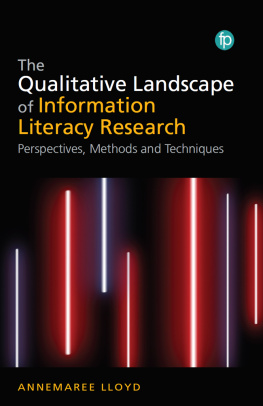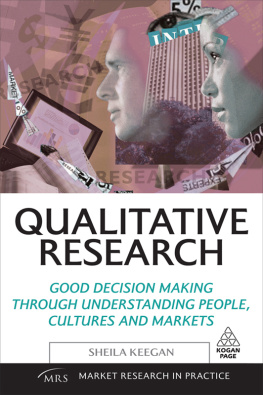CORRIDOR TALK
CANADIAN FEMINIST SCHOLARS SHARE STORIES OF RESEARCH PARTNERSHIPS
EDITED BY RACHEL BERMAN
Inanna Publications and Education Inc.
Toronto, Canada
Copyright 2014 Inanna Publications and Education Inc.
Individual copyright to their work is retained by the authors. All rights reserved. No part of this book may be reproduced or transmitted in any form or by any means, electronically or mechanically, including photocopying, recording, or any information or storage retrieval system, without prior permission in writing from the publisher.
Published in Canada by
Inanna Publications and Education Inc.
210 Founders College, York University
4700 Keele Street, Toronto, Ontario M3J 1P3
Telephone: (416) 736-5356 Fax (416) 736-5765
Email: inanna.publications@inanna.ca Website: www.inanna.ca
The publisher gratefully acknowledges the support of the Canada Council for the Arts and the Ontario Arts Council for its publishing program. We also acknowlege the financial assistance of the Government of Canada through the Canada Book Fund,
Note from the publisher: Care has been taken to trace the ownership of copyright material used in this book. The author and the publisher welcome any information enabling them to rectify any references or credits in subsequent editions.
Cover design: Val Fullard
Library and Archives Canada Cataloguing in Publication
Corridor talk : Canadian feminist scholars share stories of research partnerships / edited by Rachel Berman.
Includes bibliographical references.
Issued in print and electronic formats.
ISBN 978-1-926708-70-6 (pbk.). ISBN 978-1-926708-71-3 (epub). ISBN 978-1-77133-090-9 (mobi). ISBN 978-1-77133-091-6 (pdf)
1. FeminismResearchCanada. 2. FeminismResearchPsychological aspects. 3. FeminismResearchSocial aspects--Canada. 4. Community and collegeCanada. 5. Teacher-student relationshipsCanada. 6. Women scholarsCanada. 7. FeministsCanada. I. Berman, Rachel, 1965, editor
HQ1181.C3C62 2014 305.42072 C2013-907353-1 C2013-907354-X
Printed and Bound in Canada.
For Deborah Miller Berman (1932-2011)
and Linda Gail Ghan (1942-2011)
Table of Contents
Acknowledgements
Introduction
Rachel Berman
Chapter One
Emotional Labour and Feeling Rules in Academic and Community Research Partnerships
Nancy Mandell and Katharine King
Chapter Two
Reflecting on Community/Academic Collaboration: The Challenge of Doing Feminist Participatory Action Research
Debra Langan and Mavis Morton
Chapter Three
Researching with Respect: The Contributions of Feminist, Aboriginal and Community-Based Research Approaches to the Development of our Study of First Nations Womens Healing from Problematic Drug Use
Colleen Anne Dell, Tara Lyons, Sheila Grantham,
Jennifer M. Kilty and Whisper Chase
Chapter Four
A Critical Reflection on the use of Translators/Interpreters
in a Qualitative Cross-Language Research Project
Rachel Berman and Vappu Tyysk
Chapter Five
Decolonizing Research Initiations: Reflections on and from the Feminist Field
Melissa Autumn White
Chapter Six
Building Bridges Across Sectors: A Resource to Help Create Community and Academic Research Partnerships
Nancy Mandell and Fiona Whittington-Walsh
Chapter Seven
Building Bridges with Senior Immigrant Groups: Do CAP Protocols Work?
Nancy Mandell, Katharine King, Natalie Weiser, Valerie Preston, Larry Lam, Ann Kim, and Meg Luxton
Chapter Eight
A Witness to Loss
Charlotte Caron
Chapter Nine
Liminal Spaces of Feminist Research
Rozmin Jaffer
Chapter Ten
Unfolding Stories: Reflecting on the Process of Doing Researc h
Anita Sinner
Chapter Eleven
Feminist Research/ers, Longitudinal Multilocationality, Money: How Many Ways Can This Hurt ?
Si Transken
Contributor Notes
Acknowledgements
I N THE MID-1990S, while a graduate student, I had the good fortune to write a review of Gender, Families, and Close Relationships: Feminist Research Journeys. That book, in which the feminist authors shared their research journeys, had a tremendous impact on me. As Linda Thompson explains in the foreword of that book, these feminist authors sought to share a certain kind of knowledge: This knowledge is often hidden from othersdetails about the demands, doubts, dilemmas, decisions, compromises and accomplishments that clutter our days as we go about our work (xii).
A number of years later, when asked to moderate a session where panelists shared their experiences conducting feminist research with a focus on partnerships and the emotional labour involved, I felt compelled to begin to bring together a collection of work by Canadian feminist scholars so that they could share their experiences and insights regarding research partnership with a wider audience. I am very pleased that Inanna Publications, particularly the editor-in-chief Luciana Ricciutelli, and of course all those who have contributed their work to this volume have helped to make this possible. I would also like to thank the Faculty of Community Services at Ryerson University for their financial support of this book through their publication grant.
I would like to dedicate this book to two women. First and foremost is my mother, Deborah Miller Berman (1932-2011). She opened my eyes to feminist thinking through her keen observations of the world, and was instrumental in my ability to complete my doctoral work, as she cared for my son after her retirement allowing me to complete my dissertation. Love and miss you greatly Mom. I would also like to acknowledge Linda Gail Ghan (1942-2011) who gladly cared for her grandson, again providing me with precious time to concentrate and write. Thank you Linda.
WORKS CITED
Thompson, Linda. Forward. Gender, Families, and Close Rela-tionships: Feminist Research Journeys. Ed. Donna L. Sollie and Leigh A. Leslie. Thousand Oaks, CA : Sage. 1994. xi-xii. Print.
Introduction
RACHEL BERMAN
T HE FEMINIST SCHOLARS in this collection come from across Canada, belong to a variety of disciplines, are at various stages of an academic career, may or may not be part of the academy, adopt a variety of theoretical, ontological, and epistemological frameworks, have a range of research partners, and focus on a range of research topics. In keeping with the call, made many years ago by the philosopher of science Sandra Harding, to put the self back into science, what all the chapters share is an engagement with reflexivity, with a particular focus on the distribution of power and authority during the research partnership process. The authors address a variety of questions, such as: Whose interests are served by the research? How can partnerships be approached in a respectful way? How can partnerships work well? What should we know as we begin this process? How are decisions made? How could this have been done differently? To whom am I/are we accountable? What went wrong? What went well? What can I share with others about what we/I have learned through this process? How has this process impacted me personally? What affect has it had on the participants? and What does this connection between myself and my participants mean for my analysis, for my scholarship?


